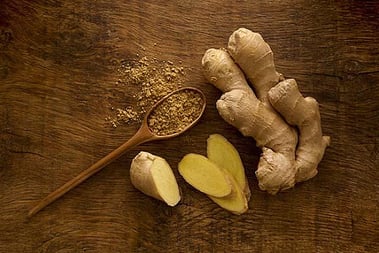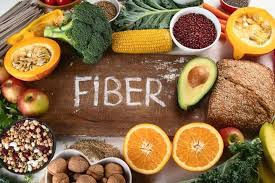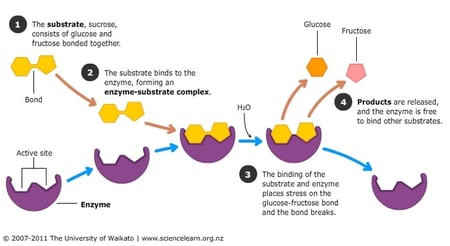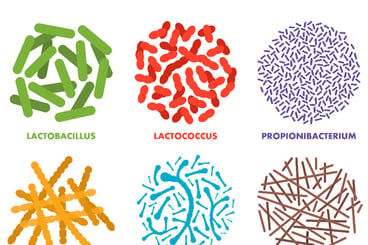Top 5 Supplements and Vitamins for Optimal Digestion
3/5/20258 min read


Introduction to Digestive Health
Digestive health is a crucial component of overall well-being, as it influences not only how food is broken down but also how nutrients are absorbed and utilized by the body. An efficiently functioning digestive system contributes to a robust immune response, mental clarity, and energy levels. However, many individuals encounter digestive issues such as bloating, gas, constipation, and irritable bowel syndrome (IBS), which can significantly affect their quality of life.
Understanding the significance of digestive health entails recognizing the complex processes that occur throughout the digestive tract. This system, extended from the mouth to the anus, is responsible for the meticulous breakdown of food, assimilation of nutrients, and the elimination of waste products. When the digestive function is compromised, symptoms can manifest that not only affect physical comfort but can also lead to other health complications, including nutritional deficiencies, chronic fatigue, and mood disorders.
In the contemporary lifestyle, factors such as poor diet, stress, sedentary habits, and medication use can further exacerbate digestive troubles. While dietary changes can be beneficial, many individuals seek additional support through supplements and vitamins designed for digestive health. These products may contain specific nutrients, enzymes, or probiotic strains that aim to restore balance in the gut microbiome, enhance digestion, and alleviate discomfort caused by various digestive disorders.
This article will explore the top five supplements and vitamins that have been effective in promoting optimal digestion. By highlighting their benefits and how they may serve as supportive options, we can better understand how targeted supplementation can enhance the overall functionality of the digestive system, alleviating common issues and promoting a healthier lifestyle.
1. Probiotics: The Good Bacteria
Probiotics, often referred to as "good bacteria," play a crucial role in maintaining optimal digestion and overall gut health. These live microorganisms, when consumed in adequate amounts, provide numerous health benefits, particularly in the gastrointestinal tract. By enhancing the balance of gut flora, probiotics help in restoring the natural microbiome, which can be disrupted due to various factors such as poor diet, stress, or antibiotic use.
The benefits of probiotics are extensive. One significant advantage is their ability to improve nutrient absorption. They assist in breaking down complex carbohydrates and proteins, thereby facilitating more efficient absorption of vital nutrients. Furthermore, probiotics can alleviate common gastrointestinal issues such as bloating, constipation, and diarrhea. They do this by promoting the growth of beneficial bacteria while inhibiting harmful bacteria, ultimately resulting in a more balanced and functional digestive system.
Several sources can provide adequate amounts of probiotics. Fermented foods are among the best options, with yogurt being one of the most popular choices. Yogurt contains live cultures that can effectively promote digestive health. Additionally, other fermented products such as kefir, sauerkraut, kimchi, and miso are excellent sources of probiotics. For individuals who may not consume fermented foods regularly, probiotic supplements are a convenient alternative. Available in various forms, including capsules, powders, and gummies, these supplements can serve as a practical means of ensuring adequate probiotic intake.
In summary, incorporating probiotics into one's diet can significantly contribute to improved digestive health. Whether through natural food sources or supplements, these beneficial bacteria can aid in maintaining gut flora balance, enhance nutrient absorption, and alleviate uncomfortable gastrointestinal symptoms. As we aim for optimal digestion, understanding the role of probiotics is essential for achieving overall well-being.
2. Digestive Enzymes: Breaking Down Food
Digestive enzymes play a crucial role in the breakdown of food, transforming complex macromolecules into absorbable nutrients that the body can efficiently utilize. These enzymes facilitate the digestive process by catalyzing chemical reactions, enabling the body to extract essential vitamins and minerals from the food we consume. Among the primary digestive enzymes are amylase, protease, and lipase. Each of these serves specific functions in the digestion of carbohydrates, proteins, and fats, respectively.
Amylase is responsible for the initial breakdown of carbohydrates, beginning in the mouth and continuing in the small intestine. This enzyme converts starches into sugars, making carbohydrates easier to digest and absorb. Protease, on the other hand, breaks down proteins into amino acids, which are vital for numerous body functions, including the building and repairing of tissues. Lastly, lipase aids in the digestion of fats by breaking them down into fatty acids and glycerol, which are crucial for cellular energy and various metabolic processes.
For individuals experiencing digestive disorders or enzyme deficiencies, the introduction of enzyme supplements can significantly enhance digestive health. Products containing a blend of digestive enzymes are widely available and can help alleviate symptoms such as bloating, gas, and discomfort after meals. Some recommended enzyme supplements include those that contain a combination of amylase, protease, and lipase, tailored to support specific dietary needs or digestive issues.
Incorporating these enzyme supplements into one's regimen may contribute to more effective digestion, improved nutrient absorption, and overall gastrointestinal wellness. Those considering enzyme supplementation should consult healthcare professionals to select the most appropriate options based on their individual health needs and dietary habits.
3. Fiber Supplements: Aiding Regularity
Dietary fiber plays a crucial role in digestion and overall gut health, serving as a key component in maintaining regular bowel movements and preventing constipation. Adequate fiber intake is essential for ensuring smooth passage of food through the digestive tract, facilitating healthier gastrointestinal function. When individuals are unable to consume sufficient fiber through their diet, fiber supplements can serve as an effective alternative, promoting digestive regularity and supporting overall wellness.
One of the primary benefits of fiber supplements is their capacity to alleviate constipation. By absorbing water in the intestine, soluble fiber increases stool bulk, making it easier to pass. Psyllium husk is a notable example of a fiber supplement that has gained popularity due to its efficiency in softening stools and promoting regular bowel movements. This soluble fiber is derived from the seeds of the Plantago ovata plant and is often found in over-the-counter products aimed at digestive health.
Inulin, another fiber supplement, presents a different set of benefits. It is a prebiotic fiber that not only aids in bowel regularity but also supports a healthy gut microbiome. By serving as a food source for beneficial gut bacteria, inulin encourages the growth of probiotics, which play an essential role in digestive health. This fermentation process enhances nutrient absorption and may contribute to overall gut health by reducing the likelihood of gastrointestinal disorders.
In conclusion, integrating fiber supplements such as psyllium husk and inulin into one’s dietary routine can significantly aid in promoting digestive regularity and improving gut health. Their ability to enhance stool consistency and nurture beneficial gut flora solidifies the importance of fiber in digestive wellness.
4. Ginger: The Natural Digestive Aid
Ginger, a widely-used root in culinary and medicinal contexts, has been recognized for centuries as a potent natural remedy for a variety of digestive issues. Its effectiveness as a digestive aid stems primarily from its ability to stimulate the digestive tract, thereby enhancing overall digestive function. This stimulation can lead to improved gut motility, which is essential for the proper breakdown and absorption of nutrients.
One of the most notable benefits of ginger is its capacity to alleviate nausea and reduce bloating. Research suggests that ginger can be particularly effective in mitigating nausea related to motion sickness, pregnancy, or chemotherapy. In addition to these properties, many individuals report a reduction in gas and discomfort often associated with digestive disorders after incorporating ginger into their diet. The anti-inflammatory properties of ginger further contribute to its status as a natural remedy for digestive issues, making it a holistic option for those seeking relief.
There are several ways to consume ginger to reap its digestive benefits. Fresh ginger can be used in cooking, added to smoothies, or infused in herbal teas. Ginger tea is a popular choice that not only soothes the stomach but also provides a warm, comforting effect. For those seeking convenience, ginger supplements are widely available in various forms, including capsules, powders, and extracts. When opting for supplements, it is crucial to select high-quality products to ensure optimal efficacy.
Incorporating ginger into one's diet can be a simple yet effective strategy for enhancing digestive health. Whether consumed raw, brewed as tea, or taken as a supplement, ginger’s natural properties offer a reliable solution for a range of digestive concerns. Its versatility not only makes it a beneficial addition to meals but also positions it as a key player in the quest for optimal digestion.
5. Peppermint: Soothing Digestive Discomfort
Peppermint, recognized for its refreshing aroma and flavor, also holds significant benefits for digestive health. The active compound menthol is primarily responsible for the soothing properties associated with peppermint, making it a popular choice for alleviating various digestive issues. Research suggests that peppermint may help relieve symptoms associated with irritable bowel syndrome (IBS), a condition that affects many individuals and is characterized by abdominal pain, bloating, and irregular bowel movements.
Several studies have highlighted peppermint's potential role in reducing bloating and improving overall digestive comfort. The antispasmodic effects of menthol can relax the muscles of the gastrointestinal tract, ultimately leading to decreased cramping and discomfort. This alleviation of digestive distress makes peppermint a valuable addition to one's regimen when experiencing gastrointestinal discomfort.
Peppermint can be consumed in various forms, allowing for versatility according to individual preferences. Peppermint tea is an easily accessible option that provides hydration along with its soothing benefits. The act of sipping warm tea can also enhance the relaxation of the digestive system. Additionally, peppermint oil is available as capsules or in its concentrated liquid form. When using the oil, users should exercise caution, as it is highly concentrated and should typically be diluted or taken in recommended doses.
For those seeking a convenient approach, peppermint capsules offer a straightforward way to incorporate this herb into one’s daily routine without the need for brewing tea or managing the strong taste of oil. As with any supplement or herbal remedy, it is advisable to consult a healthcare professional to determine the most effective approach tailored to individual digestive health needs. Ultimately, integrating peppermint into one's diet may lead to a more comfortable digestive experience.
Incorporating Supplements into Your Routine
Incorporating supplements and vitamins into your daily routine can significantly enhance your digestive health. However, it is essential to do this thoughtfully and intentionally. To start, it is advisable to consult with a healthcare professional who can provide personalized recommendations based on your specific health needs and medical history. This is particularly important as certain supplements may interact with medications or conditions.
When beginning any new supplement regimen, it’s crucial to adhere to recommended dosages. For instance, digestive enzymes are commonly taken just before meals to aid in the breakdown of food. Probiotics, on the other hand, are often recommended to be consumed either in the morning on an empty stomach or before bed to maximize their effectiveness. Fiber supplements can be introduced gradually to allow your digestive system to adjust, starting with a small amount and increasing as needed while ensuring adequate water intake.
In addition to timing and dosage, combining supplements with a balanced diet can further support optimal digestion. Incorporate a variety of fiber-rich foods, such as fruits, vegetables, and whole grains, to enhance the effects of your fiber supplements. Additionally, including fermented foods like yogurt, kefir, or sauerkraut can complement probiotic intake by promoting diverse gut flora. Ensure that your diet is rich in vitamins and minerals that support digestive function, such as magnesium and vitamin B6, which can be found in nuts, seeds, and leafy greens.
Lastly, maintaining consistency with your supplements and diet is key to achieving optimal digestive health. Using a daily planner or setting reminders can help you stay on track. This structured approach, coupled with periodic check-ins with your healthcare provider, will ensure that you are reaping the maximum benefits of your supplements while supporting your overall well-being.
Conclusion: Striving for Better Digestive Health
In the pursuit of optimal digestive health, the significance of supplements and vitamins cannot be overstated. The five supplements discussed—probiotics, prebiotics, digestive enzymes, fiber, and vitamin D—each play vital roles in enhancing gut function and overall well-being. Probiotics are essential for maintaining a balanced gut microbiota, which is crucial for effective digestion and nutrient absorption. Prebiotics, on the other hand, serve as nourishing food for beneficial bacteria, promoting their growth and activity within the digestive system.
Digestive enzymes contribute further by breaking down food components, thereby alleviating the strain on the digestive tract and minimizing discomfort. Additionally, incorporating dietary fiber can facilitate regular bowel movements and support a healthy gut. Lastly, vitamin D has been linked to improved gut health, influencing inflammatory responses and supporting the maintenance of a robust immune system within the gut.
By considering these supplements, individuals can take proactive steps toward improving their digestive health. Each supplement offers unique advantages, and integrating them into one’s daily routine may lead to significant improvements in digestion and overall gut function. However, it is critical to consult healthcare professionals prior to starting any new supplementation, ensuring that it aligns with personal health needs and goals.
As you reflect on the information presented, we encourage you to share your own experiences or any questions regarding digestive health in the comments section below. Engaging in dialogue not only fosters a sense of community but also contributes to our collective understanding of this integral aspect of health and wellness. Your insights may provide valuable support to others striving for enhanced digestive health.










